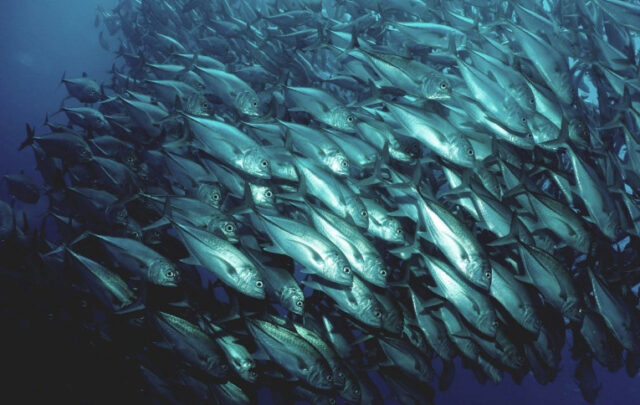Click on the headline (link) for the full text.
Many more articles are available through the Energy Bulletin homepage
China: boom or boomerang?
Orville Schell, truthdig
Perhaps no other country has so many positive and negative trends as the home of a quarter of the world’s population.
—–
Truthdig Editor’s Note: First the Terminator, then the president … there’s no shortage of people trekking to China, filled with wonderment and doubt about the future of the world’s most populous nation and fastest-growing economy. It’s a place full of monumental contradictions. There is no one better to make sense of it all in a Dig than Orville Schell, dean of UC-Berkeley’s Graduate School of Journalism and author of nine books on China. He has just returned from a trip to China.
…In 2004, China overtook the U.S. as the globe’s largest consumer of industrial and agricultural goods, and the consequences have been catastrophic for the country’s environment. Whether sufficient costly technology can be brought to bear quickly enough to both allow the high rates of economic growth to continue and to begin to compensate for all the environmental degradation that has already taken place is one of the most important questions China faces.
While there is an increasing awareness of China’s environmental problem, and while impressive strides have been made to understand the situation, the added increments of environmental degradation brought about by the growing population, increased consumer demand, the expanding industrial base, growing dependency on an export economy, greater human mobility and the consequence of ever larger resource use have so far meant that the desecration of the environment, as has just been so painfully made evident along the Songhua River, continues to far outpace any remedial action.
China now faces:
* Having one of the fastest-growing but least efficient energy systems in the world.
* Acid rain falling over one-third of its land mass.
* 75% of its lakes and rivers seriously contaminated and half of the water in its seven major rivers being unusable even for agriculture or industry.
* Having 16 out of the world’s 20 most polluted cities.
* Very serious deforestation, especially in the foothills of the Himalayas.
* Advancing desertification.
* Precipitously dropping groundwater tables all over the dry North China Plain.
(3 December 2005)
Recommended by David Roberts of Gristmill in his post: Pajamas, Truthdig, and China.
Truthdig, the site on which the article appears, is a new publication worth watching. From its About Us page:
Truthdig is a Web magazine that provides expert in-depth coverage of current affairs as well as a variety of thoughtful, provocative content assembled from a progressive point of view. The site is built around major “digs,” led by authorities in their fields, who will drill down into contemporary topics and assemble packages of content—text, links, audio, video—that will grow richer with time and user participation.
What planet are you on, Mr Bush? (and do you care, Mr Blair?)
Geoffrey Lean and David Randall, Independent
Tens of thousands of people marched in 33 countries yesterday to express concern for the environment. But will their leaders respond?
————
More than 100,000 people took to the streets in more than 30 countries yesterday, in the first world-wide demonstration to press for action to combat global warming.
The marches – timed to put pressure on the most important international climate-change negotiations since the agreement of the Kyoto Protocol eight years ago – took place against a background of a blizzard of new research showing that the heating of the planet is seriously affecting the world sooner than the scientists predicted (see panel below).
The protests were directed primarily at President George Bush, who has been assiduously trying to sabotage the protocol and has ruled out even talking about setting targets for reducing the pollution that causes global warming, once the current targetsexpire.
Harlan Watson – the head of the US delegation to the negotiations, being held in Montreal – announced at the opening of the meeting: “The United States is opposed to any such discussions.”
Yesterday’s march in London was also directed at Tony Blair. Ten thousand demonstrators – who created a party atmosphere while carrying banners linking the President and the Prime Minister as “climate criminals” – took a special detour to hand in a letter at No 10 Downing Street.
They are concerned that Mr Blair – who put climate change at the head of the international agenda by making it one of his priorities for this summer’s Gleneagles Summit – may have recently trimmed his position to please Mr Bush. The letter demanded that he reaffirm the Government’s commitment to a new international treaty with legally binding targets on reducing emissions of carbon dioxide and other pollutants that cause the climate change.
(4 December 2005)
Eco-literacy and America’s ‘nature-deficit disorder’
Joel Makower, WorldChanging
It’s axiomatic that the more people truly understand something, the better able they’ll be to create informed opinions and decisions. And in the case of environmental literacy, what we don’t know truly could hurt us.
That’s why a new report on American’s eco-literacy is so humbling to those of us in the environmental information business — and why it is one of the more important reports I’ve read of late.
The report, Environmental Literacy in America, comes from the National Environmental Education and Training Foundation, a nonprofit chartered by Congress in 1990 to promote “environmental education in its many forms.”
…The report… represents an analysis of nearly a decade’s worth of research on Americans’ environmental literacy, conducted by NEETF in partnership with the Roper Public Affairs unit at GfK NOP (which also conducts the Green Gauge survey I covered recently).
The bottom line, according to the report:
Most people accumulate a diverse and unconnected smattering of factoids, a few (sometimes incorrect) principles, numerous opinions, and very little real understanding. Research shows that most Americans believe they know more about the environment than they actually do.
For example, says Coyle:
That is why 45 million Americans think the ocean is a source of fresh water; 120 million think spray cans still have CFCs in them even though CFCs were banned in 1978; another 120 million people think disposable diapers are the leading problem with landfills when they actually represent about 1% of the problem; and 130 million believe that hydropower is America’s top energy source, when it accounts for just 10% of the total.
(4 December 2005)
On climate change, a change of thinking
Andrew C. Revkin, NY Times
IN December 1997, representatives of most of the world’s nations met in Kyoto, Japan, to negotiate a binding agreement to cut emissions of “greenhouse” gases.
They succeeded. The Kyoto Protocol was ultimately ratified by 156 countries. It was the first agreement of its kind. But it may also prove to be the last.
Today, in the middle of new global warming talks in Montreal, there is a sense that the whole idea of global agreements to cut greenhouse gases won’t work.
A major reason the optimism over Kyoto has eroded so rapidly is that its major requirement – that 38 participating industrialized countries cut their greenhouse emissions below 1990 levels by the year 2012 – was seen as just a first step toward increasingly aggressive cuts.
But in the years after the protocol was announced, developing countries, including the fast-growing giants China and India, have held firm on their insistence that they would accept no emissions cuts, even though they are likely to be the world’s dominant source of greenhouse gases in coming years.
Their refusal helped fuel strong opposition to the treaty in the United States Senate and its eventual rejection by President Bush.
…But the current stalemate is not just because of the inadequacies of the protocol. It is also a response to the world’s ballooning energy appetite, which, largely because of economic growth in China, has exceeded almost everyone’s expectations. And there are still no viable alternatives to fossil fuels, the main source of greenhouse gases.
Then, too, there is a growing recognition of the economic costs incurred by signing on to the Kyoto Protocol.
As Prime Minister Tony Blair of Britain, a proponent of emissions targets, said in a statement on Nov. 1: “The blunt truth about the politics of climate change is that no country will want to sacrifice its economy in order to meet this challenge.”
…from here on, progress on climate is less likely to come from megaconferences like the one in Montreal and more likely from focused initiatives by clusters of countries with common interests, said Mr. Benedick, who is now a consultant and president of the National Council on Science and the Environment, a private group promoting science-based environmental policies.
The only real answer at the moment is still far out on the horizon: nonpolluting energy sources. But the amount of money being devoted to research and develop such technologies, much less install them, is nowhere near the scale of the problem, many experts on energy technology said.
(4 December 2005)
While there is truth in Revkin’s article, there’s also a streak of apologism for Bush and Blair. For example, it’s very doubtful that the intransigent stance of the Bush administration against Kyoto was due to China and India. After all, the Bush administration has denied the reality of climate change for years.
Sadly, the article makes no mention of conservation, efficiency or population control — are these not real answers to climate change and energy shortages? Jared Diamond might say that cultural taboos prevent us from taking these solutions seriously even when they are staring us in the face. Which will win out – cultural taboos or our sense of survival?
UPDATE (Dec 5): More criticism of the article from Climate Protection Campaign.
-BA
Climate Indymedia is born
Lloyd Hart, UK Indymedia
A global group of climate and media activists are establishing a topical indymedia site on climate issues. We are concerned that news reporting on climate issues too often is biased against local communties solutions and the concerns of local communities to government and industry are not being heard. We hope to provide a place for a range of news and views on climate issues to have a voice.
Our site is supported by members of many grass roots environmental, social, climate and alternative media organisations. We hope that you will take advantage of our site to post your stories so that people globally can access of the views of the majority world on this important issue.
(4 December 2005)





